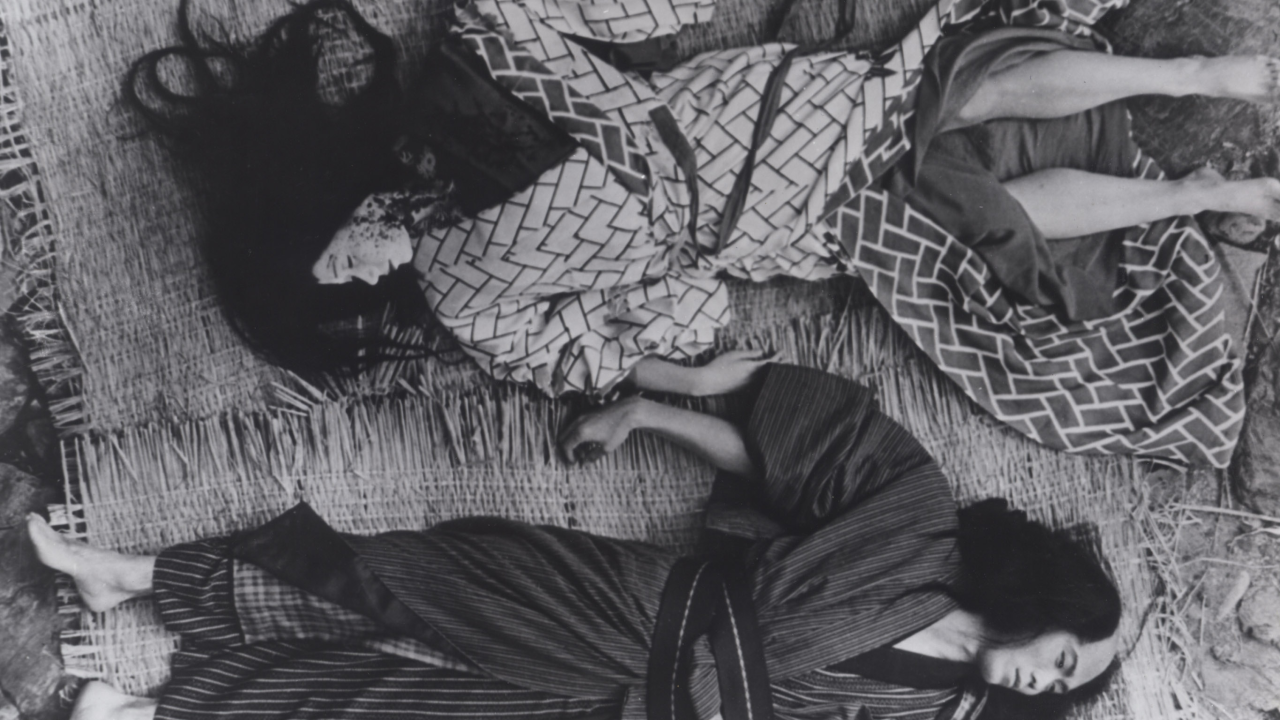Double Suicide

Many films have drawn from classic Japanese theatrical forms, but none with such shocking cinematic effect as director Masahiro Shinoda's Double Suicide. In this striking adaptation of a Bunraku puppet play (featuring the music of famed composer Toru Takemitsu), a paper merchant sacrifices family, fortune, and ultimately life for his erotic obsession with a prostitute. Criterion is proud to present Double Suicide in a stunning digital transfer, with a new and improved English subtitle translation.
SPECIAL EDITION FEATURES
- Restored digital master
- An essay by Claire Johnston
Cover by Lloyd Ziff
SPECIAL EDITION FEATURES
- Restored digital master
- An essay by Claire Johnston
Cover by Lloyd Ziff

Cast
- Kichiemon Nakamura
- Jihei
- Shima Iwashita
- Koharu/Osan
- Hosei Komatsu
- Tahei
- Yusuke Takita
- Magoemon
- Kamatari Fujiwara
- Yamatoya owner
- Yoshi Kato
- Gozaemon
- Shizue Kawarazaki
- Osan’s mother
- Tokie Hidari
- Osugi
Credits
- Director
- Masahiro Shinoda
- Screenplay
- Taeko Tomioka
- Screenplay
- Masahiro Shinoda
- Screenplay
- Toru Takemitsu
- From the play by
- Monzaemon Chikamatsu
- Cinematography
- Toichiro Narushima
- Art director
- Kiyoshi Awazu
- Music
- Toru Takemitsu











